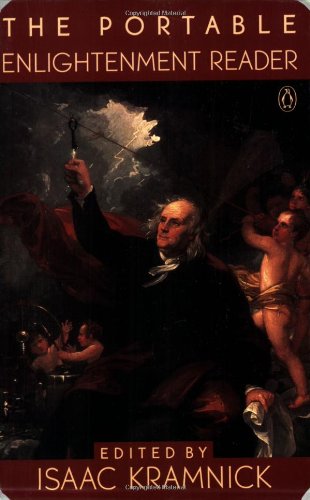Books, Brochures, and Chapters>Book Chapter: Diderot, Denis (1755), Encyclopédie, Vol. 5 (1755), pp. 635–648A, Paris, Retrieved on 2011-05-30Source Material [quod.lib.umich.edu]
Folksonomies: knowledge encyclopedia Memes
30 MAY 2011
 Definition of the Encyclopedia
Definition of the Encyclopedia
ENCYCLOPEDIE, f. n. (Philosophy). This word means the interrelation of all knowledge; it is made up of the Greek prefix en, in, and the nouns kyklos, circle, and paideia, instruction, science, knowledge. In truth, the aim of an encyclopedia is to collect all the knowledge scattered over the earth, to present its general outlines and structure to the men with whom we live, and to transmit this to those who will come after us, so that the work of past centuries may be useful to the following ce...The noble purpose of this important work.
30 MAY 2011
 Greek or Latin?
Greek or Latin?
If I were asked which, of the Greek and Latin languages, is to be preferred, I would answer neither; my opinion is that they both should be used: Greek for anything that Latin cannot express, or would not offer equivalent expression for, or one less exacting; I would have Greek serve only to fill in the gaps in Latin, and this simply because familiarity with Latin is more widespread: for I concede that if we were to choose on the grounds of richness and abundance, there would be no hesitation...Diderot discusses the advantages and disadvantages of using each of these classical languages.
30 MAY 2011
 Definition of Encyclopedia V2
Definition of Encyclopedia V2
Encyclopedia. This word signifies chain of knowledge ; it is composed of the Greek preposition ἐν , in , and the nouns κύκλος , circle , and παιδεία , knowledge .
Indeed, the purpose of an encyclopedia is to collect knowledge disseminated around the globe; to set forth its general system to the men with whom we live, and transmit it to those who will come after us, so that the work of preceding centuries will not become useless to the centuries to come; and ...Another translation of the introduction to the article on Encyclopedie.
01 JUN 2011
 The Encyclopedia Could Only Emerge in an Enlightened Age
The Encyclopedia Could Only Emerge in an Enlightened Age
I have I have said I have said that it could only belong to a philosophical age to attempt an encyclopidie; and I have said this because such a work constantly demands more intellectual daring than is commonly found in ages of pusillanimous taste. All things must be examined, debated, investigated without exception and without regard for anyone's feelings. . . . We must ride roughshod over all these ancient puerilities, overturn the barriers that reason never erected, give back to the arts an...Where ideas may be openly debated and discussed, and people exist who are interested in giving back to society.
01 JUN 2011
 Bad Men Hoard Knowledge
Bad Men Hoard Knowledge
It would be desirable for the government to authorize people to go into the factories and shops, to see the craftsmen at their work, to question them, to draw the tools, the machines, and even the premises.
There are special circumstances when craftsmen are so secretive about their techniques that the shortest way of learning about them would be to apprentice oneself to a master or to have some trustworthy person do this. There would be few secrets that one would fail to bring to light by t...Instead of sharing it to the benefit of the rest of the world, and yet these same men complain of the wisdom of the ancients lost to the present.
Parent Reference

Books, Brochures, and Chapters>Book: Kramnick , Isaac (1995-12-01), The Portable Enlightenment Reader (The Viking Portable Library), Penguin (Non-Classics), Retrieved on 2011-05-30
Folksonomies: enlightenment classics 



